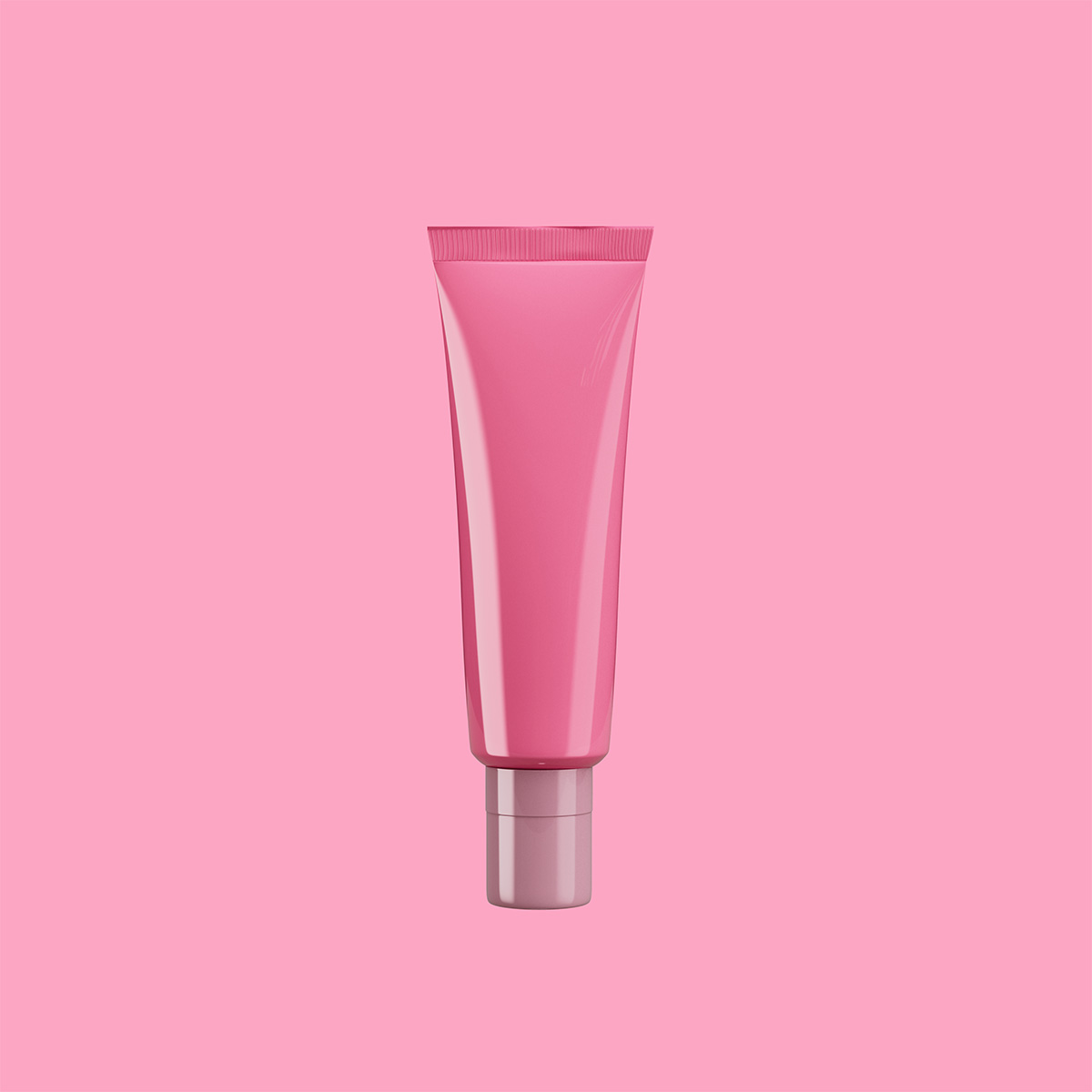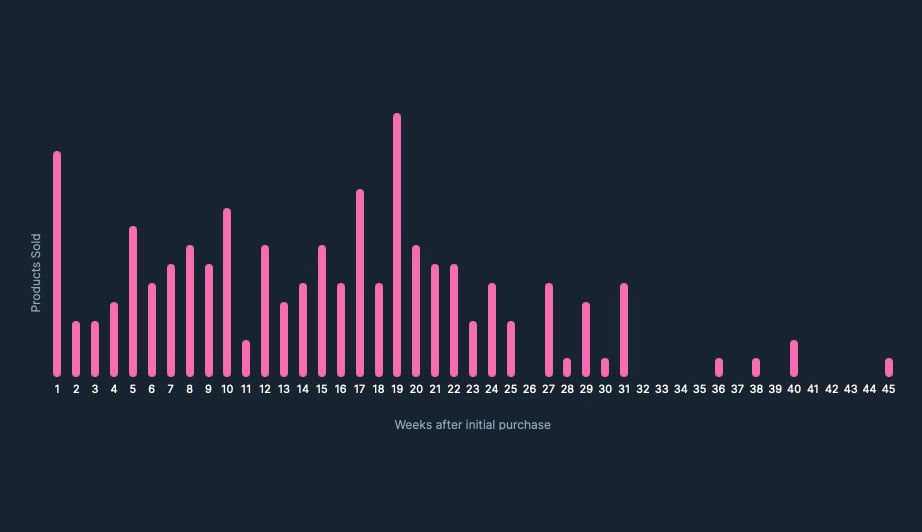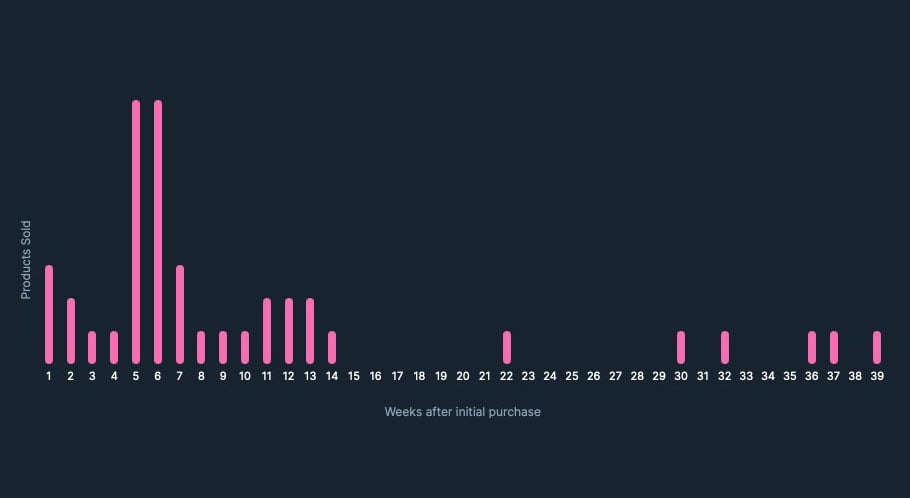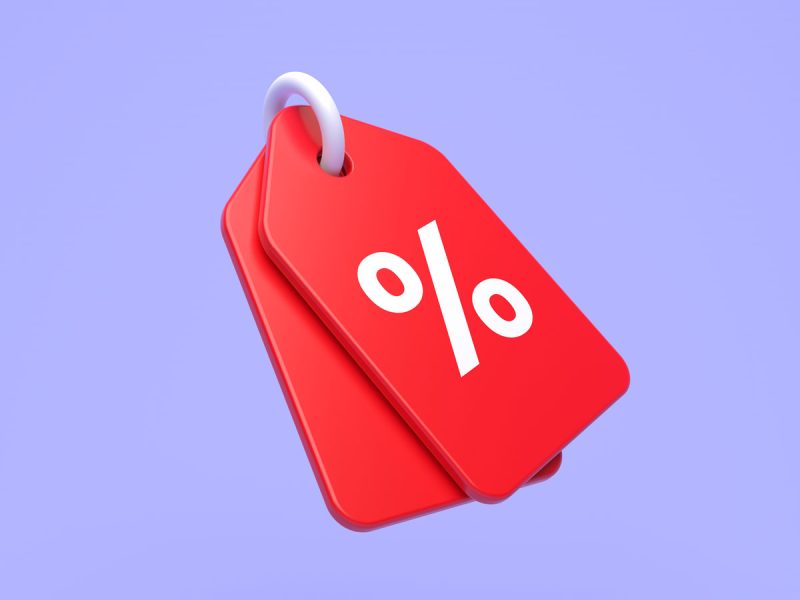In the world of Ecommerce, the concept of recurring products holds intriguing potential
Recurring products, simply put, refer to items customers purchase more than once in a certain interval of time. These gems hold more value than meets the eye, as their value can grow with the number of times they are repurchased by the same customer. This is, however, only a potential that can be fulfilled by taking the right action at the right time. So imagine if you could predict not only IF a product makes a comeback in your customer’s cart, but also WHEN.
Steer your marketing efforts in the right direction
With the insights of Recurring Products, you will know when to tap your customers on the shoulder and present them with products they might need to purchase again. For instance, if a customer picks up something that’s usually repurchased, say, four weeks later you can fire off a friendly reminder to their inbox 3,5 weeks later, or offer them a list of trending similar items. Implement better-constructed subscription plans, product bundling, or loyalty strategies. The choice is yours!
You can also learn that some products are not recurring, which is also highly valuable information. It gives you a clue on where to spend retargeting marketing efforts and focus on those products that bring you the most value. Another figure that indicates product potential is Product Lifetime Value, which we elaborate on in another article.


Predict customer behavior with the power of Product Intelligence
Our cutting-edge Product Intelligence system equips you with the power to predict the recurrence of the products you offer without customer tracking or individual customer behavior data.
PI operates on AI models that aggregate large sets of data from product feeds and order feeds to generate patterns and trends without breaking the privacy of individual customers.

Let’s break it down with two examples
Analyzing data from a group of mascaras, we obtain the results visualized in the graph. It shows a distribution of repurchases which happen in the weeks after the first one.
The peak we observe in week 19 suggests that this is when many customers, on average, will shop for this item again. This is when you can plan email campaigns reminding your customers that they might be running out of mascara and send them the direct link to the item they know or a list of trending recommendations.
The graph for hair vitamins on the other hand shows a peak in weeks 5 and 6, telling us that this product is bought more often than mascara, for instance. This product can be the right candidate for a subscription plan, and if other relevant products have a similar recurring value, they can be bundled together in the same plan.
An intelligent system integrated with your online store
With only the two examples here, it becomes quickly obvious that they will require action at two different times. And when you scale to thousands of products that some shops have in their inventory, data can quickly become heavy and complex.
This is where Product Intelligence comes into play. This system, built on AI models, operates with multiple data inputs and provides you with the needed information. With an easy-to-integrate API, you can understand the rhythm of customers’ buying habits and move in sync with them.
Get ready to elevate your game because the future of shopping is all about crafting excellent, personalized shopping experiences using the power of data and Artificial Intelligence. Join us on this journey to set new standards for the industry and be at the forefront of new customer experience trends.
Explore more about Pi
Maximize Profits with the Knowledge of Product Discount Distribution
- Ecaterina Capatina
- product intelligence
Unlock Important Insights into Recurring Products
- Ecaterina Capatina
- product intelligence
Target customers at the right time of the day with Hourly Distribution
- Ecaterina Capatina
- product intelligence









